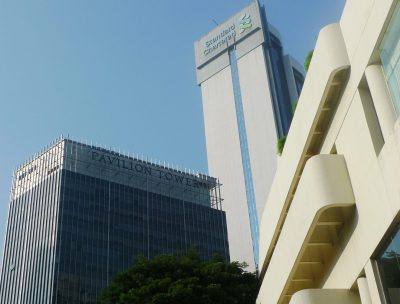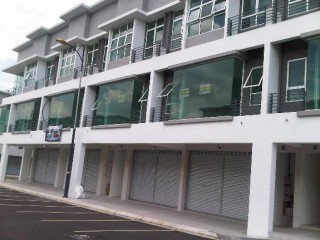KL office rentals facing more declines this year
The drop in rental rates for prime office spaces in Kuala Lumpur is expected to fall further in the next 12 months due to pressure from impending supply in the market, according to Knight Frank. In its newly-released Asia Pacific Prime Office Rental Index, the global property firm said KL rentals fell by 0.7% in 2015 and dropped 0.4% from 4Q last year to 1Q this year. Rental rates in KL have been reduced in anticipation of an influx of new supply, although the vacancies left by oil and gas companies have been partly filled by the technology, media and telecom (TMT) sector. However, the firm noted that rental declines in Singapore and Jakarta were much higher last year, at 9.9% and 9% respectively. (The Malay Mail Online)
44,000 residential owners slapped with warnings for failing to separate waste
More than 44,000 owners of residential properties in Johor have received warning letters from the state Solid Waste Management and Public Cleansing Corporation (SWCorp) for not separating their household waste during checks that were conducted since September last year. These household could be issued with compound fines if they do not separate their household waste, following enforcement of the policy beginning June 1. First offense compounds for landed and high-rise residentials are RM50 and RM100 respectively. The compounds can be paid at all SWCorp centres nationwide. (New Straits Times Online)
Malaysia keen to learn disaster management from Japan
Malaysia is interested to learn from Japan its experiences and know-how in managing natural disasters and reducing the risks of such calamities, said Deputy Prime Minister Datuk Seri Ahmad Zahid Hamidi. The government will be sending a team to learn from the experience of the Miyagi Prefecture tsunami disaster management. Ahmad Zahid said it would give Malaysia a good opportunity to raise its preparedness to face any natural disaster. The three main elements to learn are holistic long-term planning to avoid severe damages, long-term planning to house flood victims while avoiding higher cost and providing better comfort, and restructuring of disaster victims’ employment income. (Astro Awani)
Some 5,000 Singaporean families living in Johor
According to a 2014 estimate by the Johor-Singapore Community Care Association, about 5,000 Singaporean families have set up home in Johor. Some are retirees, while others still work in Singapore, but chose to live in Johor Baru and commute daily between the two cities. Besides cheaper house prices in Malaysia, lower cost of living was also cited as the main reason behind their decision to stay in Johor. Cheaper cars are also an attractive factor, as cars in Malaysia are about 50% cheaper than in Singapore, and do not require a certificate of entitlement (COE) that has to be renewed every 10 years. Petrol is also much cheaper, as is car maintenance. However, Singaporeans are not allowed to use or keep foreign-registered vehicles in Singapore, a measure by the Singapore Land Transport Authority to control the car population. Vehicle entry permit rates have also been raised, making it more costly to travel between the two cities frequently. (Malaysia Chronicle)

The new park is home to more than 250 species of hard coral and around 360 species of fish. Photograph: Eric Madeja/WWF Malaysia
Malaysia establishes 1-million-hectare marine park
Malaysia has established the biggest marine protected area (MPA) in the country. The Tun Mustapha park (TMP) occupies 1m hectares (2.47m acres) of seascape off the northern tip of Sabah province in Borneo, a region containing the second largest concentration of coral reefs in Malaysia as well as other important habitats like mangroves, sea grass beds and productive fishing grounds. It is also home to scores of thousands of people who depend on its resources, from artisanal fishing communities to the commercial fisheries sector. It took nearly 13 years of consultation, planning and negotiation to get the Tun Mustapha MPA officially gazetted, due to its sheer size and complexity to carry out. “The establishment of Tun Mustapha park will boost the conservation and biodiversity of this uniquely rich natural environment,” said Marco Lambertini, Director General of WWF International. The TMP has huge potential for nature-based tourism development, with diving activities, beautiful white beaches, over 50 pretty islands and stunning seascapes. (The Guardian)

A map of the new Tun Mustapha marine protected area, which occupies just under one million hectares of seascape, including more than 50 islands. Illustration: WWF Malaysia





